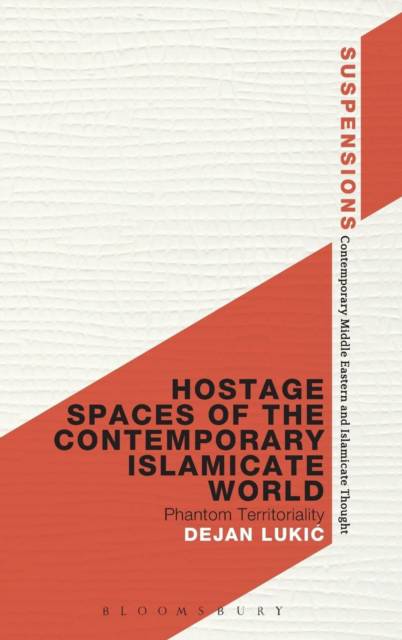
- Afhalen na 1 uur in een winkel met voorraad
- Gratis thuislevering in België vanaf € 30
- Ruim aanbod met 7 miljoen producten
- Afhalen na 1 uur in een winkel met voorraad
- Gratis thuislevering in België vanaf € 30
- Ruim aanbod met 7 miljoen producten
Zoeken
Hostage Spaces of the Contemporary Islamicate World
Phantom Territoriality
Dejan Lukic, Dejan Lukiac
€ 322,45
+ 644 punten
Uitvoering
Omschrijving
How is hostage space constructed? In this age-long procedure found in conflicts around the world, strange forms of terror and intimacy arise, particularly in the contemporary Islamic cultures of Chechnya, Albania, and Bosnia. This book investigates the modes of desire and politics found in kidnapping, in order to reveal the voices of victims and kidnappers that often remain closed up.
Dejan Lukic explores the spaces where hostages and hostage takers come into contact - spaces of accident, sacrifice, hope, and catastrophe - or, in other words, the spaces that announce utopias bound to fail. In this book, the figures of the victim, the terrorist, the sovereign, the resistance fighter and the witness - among others - emerge with a new face; one that will contribute to our understandings of what it means to act politically and ethically today.
Dejan Lukic explores the spaces where hostages and hostage takers come into contact - spaces of accident, sacrifice, hope, and catastrophe - or, in other words, the spaces that announce utopias bound to fail. In this book, the figures of the victim, the terrorist, the sovereign, the resistance fighter and the witness - among others - emerge with a new face; one that will contribute to our understandings of what it means to act politically and ethically today.
Specificaties
Betrokkenen
- Auteur(s):
- Uitgeverij:
Inhoud
- Aantal bladzijden:
- 208
- Taal:
- Engels
- Reeks:
Eigenschappen
- Productcode (EAN):
- 9781441194848
- Verschijningsdatum:
- 14/03/2013
- Uitvoering:
- Hardcover
- Formaat:
- Genaaid
- Afmetingen:
- 152 mm x 236 mm
- Gewicht:
- 458 g

Alleen bij Standaard Boekhandel
+ 644 punten op je klantenkaart van Standaard Boekhandel
Beoordelingen
We publiceren alleen reviews die voldoen aan de voorwaarden voor reviews. Bekijk onze voorwaarden voor reviews.







